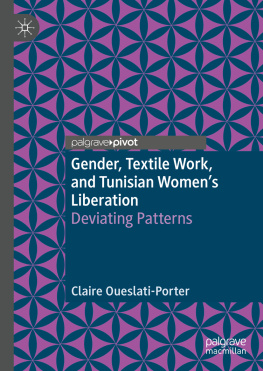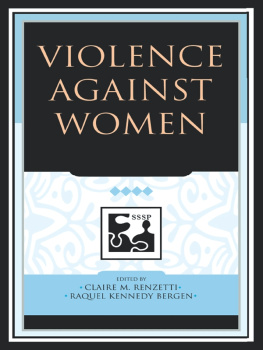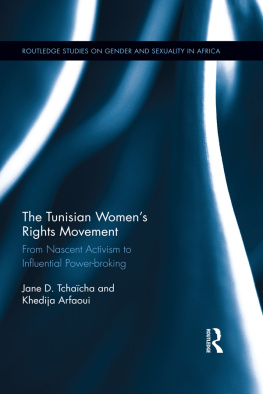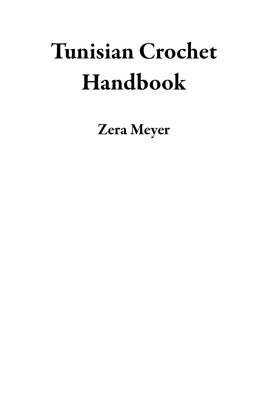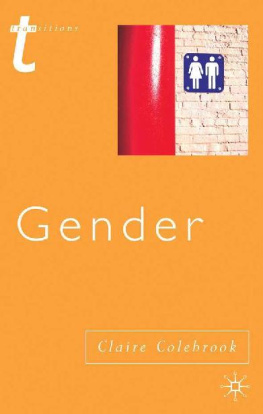Claire Oueslati-Porter - Gender, Textile Work, and Tunisian Women’s Liberation
Here you can read online Claire Oueslati-Porter - Gender, Textile Work, and Tunisian Women’s Liberation full text of the book (entire story) in english for free. Download pdf and epub, get meaning, cover and reviews about this ebook. year: 2020, publisher: Springer Nature, genre: Detective and thriller. Description of the work, (preface) as well as reviews are available. Best literature library LitArk.com created for fans of good reading and offers a wide selection of genres:
Romance novel
Science fiction
Adventure
Detective
Science
History
Home and family
Prose
Art
Politics
Computer
Non-fiction
Religion
Business
Children
Humor
Choose a favorite category and find really read worthwhile books. Enjoy immersion in the world of imagination, feel the emotions of the characters or learn something new for yourself, make an fascinating discovery.
- Book:Gender, Textile Work, and Tunisian Women’s Liberation
- Author:
- Publisher:Springer Nature
- Genre:
- Year:2020
- Rating:3 / 5
- Favourites:Add to favourites
- Your mark:
- 60
- 1
- 2
- 3
- 4
- 5
Gender, Textile Work, and Tunisian Women’s Liberation: summary, description and annotation
We offer to read an annotation, description, summary or preface (depends on what the author of the book "Gender, Textile Work, and Tunisian Women’s Liberation" wrote himself). If you haven't found the necessary information about the book — write in the comments, we will try to find it.
Gender, Textile Work, and Tunisian Women’s Liberation — read online for free the complete book (whole text) full work
Below is the text of the book, divided by pages. System saving the place of the last page read, allows you to conveniently read the book "Gender, Textile Work, and Tunisian Women’s Liberation" online for free, without having to search again every time where you left off. Put a bookmark, and you can go to the page where you finished reading at any time.
Font size:
Interval:
Bookmark:
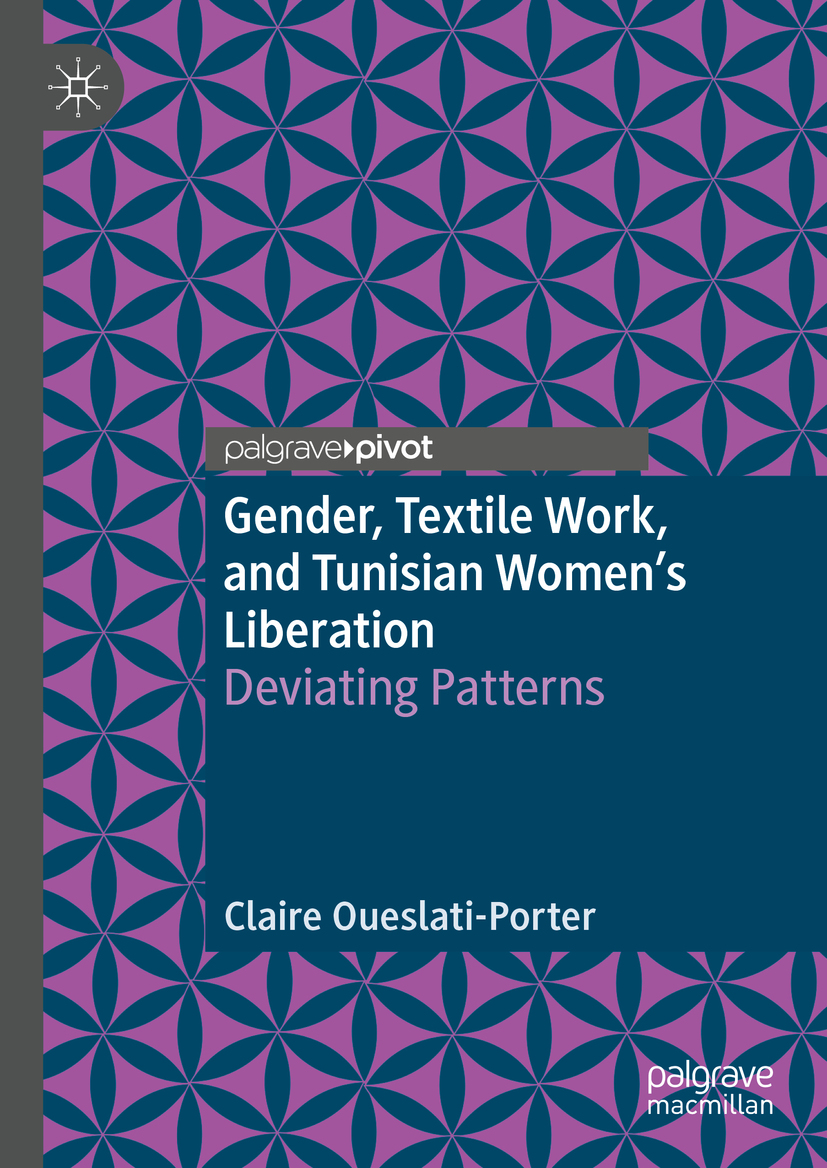

Cover illustration: Pattern Melisa Hasan
This Palgrave Pivot imprint is published by the registered company Springer Nature Switzerland AG.
The registered company address is: Gewerbestrasse 11, 6330 Cham, Switzerland
This book is dedicated to Faris and Maher.
The process of creating this book took many peoples support. The dissertation research fellowship awarded to me by the American Institute for Maghrib Studies funded this study. Le Centre dEtudes Maghrbines Tunis offered support and practical assistance in the process of obtaining government permissions to conduct research in Binzarts export processing zone. Kevin Yelvingtons rigorous and caring mentorship throughout my research and writing process is of central importance. Juliet Erazo reviewed and offered detailed comments on this book proposal, and then reviewed and offered invaluable suggestions to this manuscript. Mia Leonins support for the creative aspects of ethnographic writing encouraged me to excavate my fieldwork experiences; she also reviewed and offered help with the manuscript. Aslihan Akkaya reviewed the manuscript and provided support and important suggestions. Andrew Porter offered much-needed encouragement. E.J. Fords unwavering friendship edified me throughout this writing process. Sarah Tobins work in the Middle East continues to be an inspiration. Starting with the weekends we spent together in Binzart in 2008, Heather Jendoubi helped keep me grounded during the fieldwork.
My parents, Suzanne T. Gilliard Porter and Terry E. Porter shaped my ability to think critically and to value the creative writing process. My son Fariss presence while I conducted this research kept me deeply aware of working motherhood; in the years since 2008, countless conversations with Faris continue to inspire me. Maher Oueslatis insights and support continue to be precious.
This chapter introduces readers to the research which focuses on gender and work in Tunisia. The authors own experiences are important to the research. This chapter describes the popular discourse of the already-liberated Tunisian woman and how it depicts womens rights as stemming from Tunisian legal codes. The introduction introduces skepticism around the ways in which womens rights can obfuscate the realities faced by many women in the labor force and in the family, the two social institutions that are most closely scrutinized throughout the book. Further, liberated Tunisian women are the subject of societal anxiety about womens sexuality and power.
On my first trip from our home in Miami, Florida, to Tunisia in 2006, my Tunisian husband Maher and I and our one-year-old baby Faris stayed with his parents in their apartment in Ezzahra , a suburb of Tunis. My in-laws lived with two of Mahers unmarried older brothers, and his then-unmarried younger sister, Kalthoum. As we pulled up at their apartment building, my sister-in-law stood in the courtyard performing ululation that was audible through the closed car windows. As I exited the car, I remember my father-in-law taking Faris from me. The following days were a blur of visiting relatives coming to the apartment. They doted on baby Faris and had a good look at the American wife.
After being in the apartment for a day and a half, as I watched the sun setting from the rooftop terrace, it dawned on me that I had not left the apartment to go anywhere for a full two days. While Maher left the apartment with his brothers and father just a few hours after our arrival and seemed only to come home for meals and to sleep, his sisters and mother only left the house to do quick errands in neighborhood shops. Being in the apartment with my mother-in-law and Kalthoum as they endlessly cooked fabulous meals, cleaned, and served visitors and family, gave me a very particular first impression about Tunisian gender relations. What I learned did not jibe with the academic and government descriptions of Tunisian womens liberation.
Both my sisters-in-law had remained unemployed for most of their twenties, despite their college degrees and tenacious job searches. Both spent many years after graduating college living in their parents home, earning little or no money and having little autonomy. The fact that they remained unmarried throughout most of their twenties meant that they remained girls, in a cultural sense. They spent their days assisting their mother, hosting visitors, and serving their male kin.
My eldest sister-in-law Awatef eventually married and moved into a middle-class neighborhood twelve blocks away from her parents apartment. For married women homemakers like her, whose college degrees were supposed to have opened the door to careers, life is marked by frequent frustrations. Why did I get this college degree? So I can be stuck at home, a housewife? Awatef repeated these sentiments to me frequently in her perfect British English. She especially liked to speak to me frankly in English because her husband did not speak English. She acknowledged her economic privilege as a woman married to a man with a job at a multinational company, but she lamented that she did not have a chance to leave her beautiful walled villa for up to four days at a time. She was not forbidden from going out by her husband, but she was expected to do the housework and childcare for their two small children. Her husband came home from work long enough to eat her delicious meals and to inspect her housework before heading out to socialize with his men friends in the cafs. Her husband reprimanded her if she failed to clean things properly or make the meals that he desired. When she had to ask him for money, she told me that she felt humiliated.
Font size:
Interval:
Bookmark:
Similar books «Gender, Textile Work, and Tunisian Women’s Liberation»
Look at similar books to Gender, Textile Work, and Tunisian Women’s Liberation. We have selected literature similar in name and meaning in the hope of providing readers with more options to find new, interesting, not yet read works.
Discussion, reviews of the book Gender, Textile Work, and Tunisian Women’s Liberation and just readers' own opinions. Leave your comments, write what you think about the work, its meaning or the main characters. Specify what exactly you liked and what you didn't like, and why you think so.

